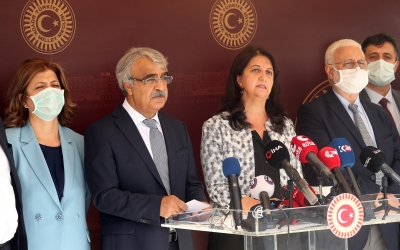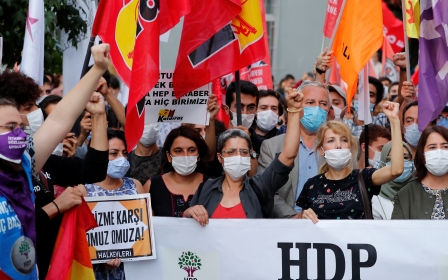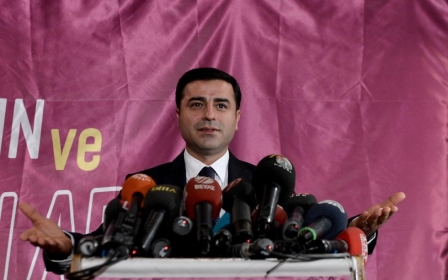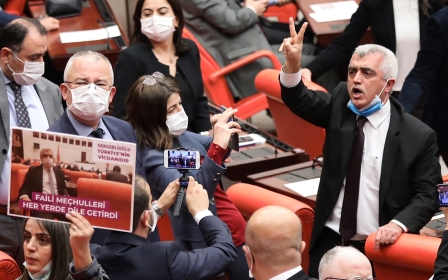Turkey: Chief prosecutor files lawsuit to close pro-Kurdish HDP party
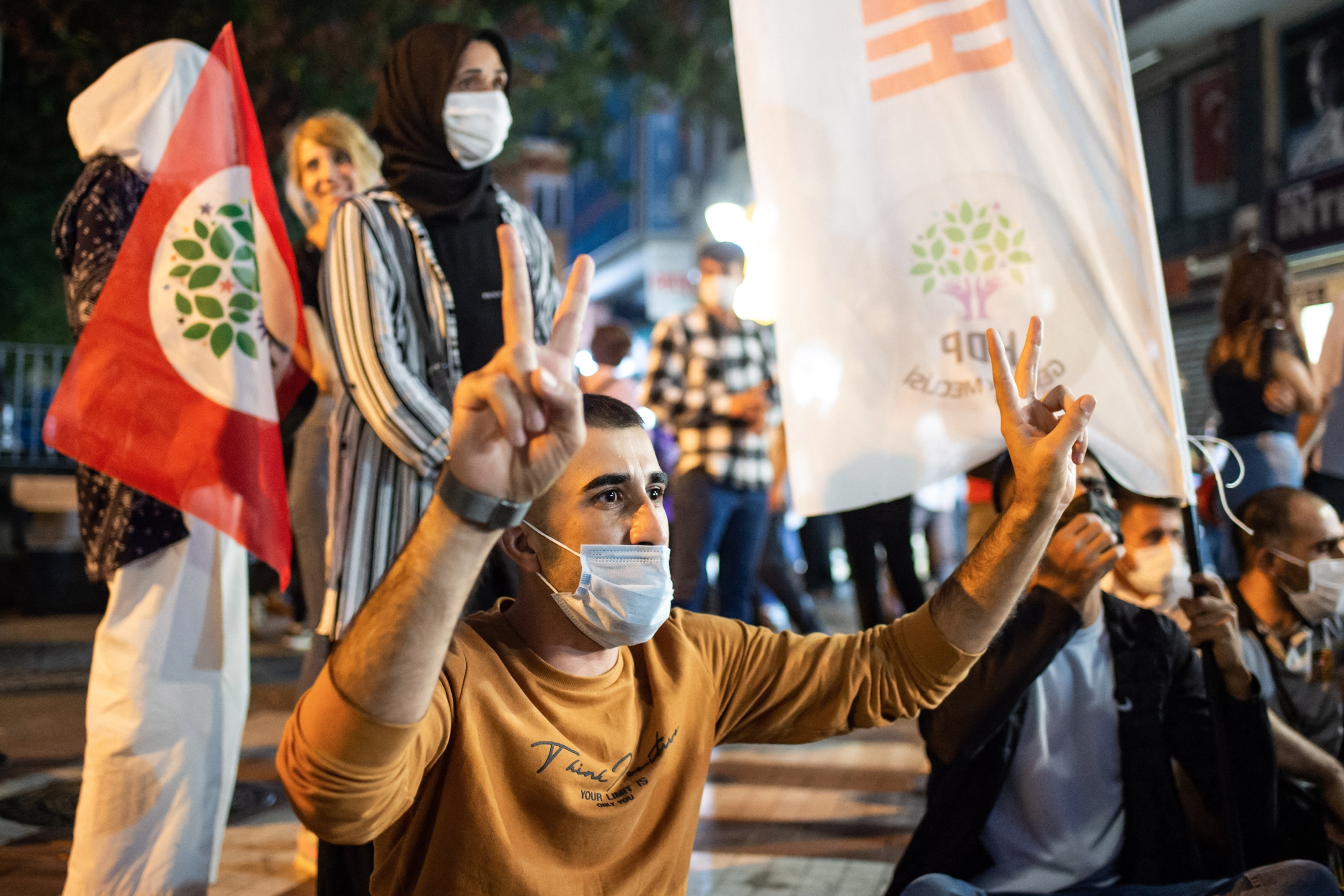
Turkey's chief prosecutor filed a lawsuit on Wednesday, seeking to disband the pro-Kurdish People's Democracy Party (HDP), accusing it of having links with the outlawed Kurdistan Worker's Party (
Bekir Sahin, chief public prosecutor of the Supreme Court of Appeals, said in an indictment submitted to the Constitutional Court that the HDP, "through the actions and statements of its members", had attempted "to destroy the inseparable unity of the Turkish state and the nation".
Sahin accused the HDP, the third-largest grouping in the country's parliament, of working with the "PKK terror group and its subsidiaries", as an extension of the armed group.
The PKK is designated a terrorist organisation by Turkey, the United States and the European Union. More than 40,000 people are estimated to have been killed in fighting between Turkish forces and the group since the 1980s.
The HDP, which has 55 seats in the 600-member parliament, has denied any links with the PKK.
Devlet Bahceli, the leader of the Nationalist Movement Party (MHP), Turkish President Recep Tayyip Erdogan's coalition partner, has repeatedly called for the HDP to be shut down, also alleging it had ties to the PKK.
Over the past two years, the Turkish government has launched a crackdown on the party, dismissing 50 HDP mayors from office, and detaining more than 7,000 of its members on terrorism charges.
Despite Bahceli's efforts, the ruling AK Party has refrained from advocating for the closure of the HDP after it successfully fended off a legal challenge in 2008.
The closure of political parties is fraught with legal obstacles after constitutional changes introduced in 2010 by President Erdogan.
To close the party, supporters would need backing from at least 10 of 15 judges. Instead of disbanding the HDP, the Constitutional Court could instead partially or completely deny treasury aid.
Pro-Kurdish political parties have a long history of court-ordered closure. Aliza Marcus, a Kurdish affairs expert, said on Twitter that this was the "ninth time courts have closed the pro-Kurdish party and each time they reconstitute themselves - as befits a party that polls majority in southeast (and increasingly wins seats in country's west)".
The Haberturk daily newspaper reported in an article on Wednesday that the prosecutor decided to pursue the case after receiving a copy of a separate indictment on the Kobane riots in 2014, which the government blamed on the HDP and its former leader, Selahattin Demirtas, who has been in prison for nearly five years.
Protesters took to the streets in Turkey's mainly Kurdish southeast in October 2014, accusing the Turkish army of standing by as the Islamic State (IS) laid siege to the town of Kobane, just over the border in northern Syria.
The riots led to the deaths of 37 people, with several injured across southeast Turkey, including in the cities of Diyarbakir, Batman and Siirt.
Middle East Eye propose une couverture et une analyse indépendantes et incomparables du Moyen-Orient, de l’Afrique du Nord et d’autres régions du monde. Pour en savoir plus sur la reprise de ce contenu et les frais qui s’appliquent, veuillez remplir ce formulaire [en anglais]. Pour en savoir plus sur MEE, cliquez ici [en anglais].


